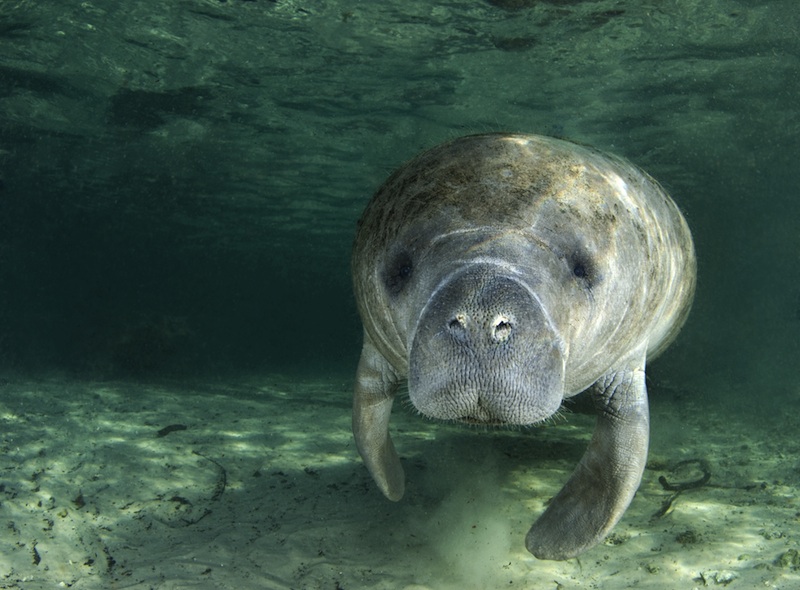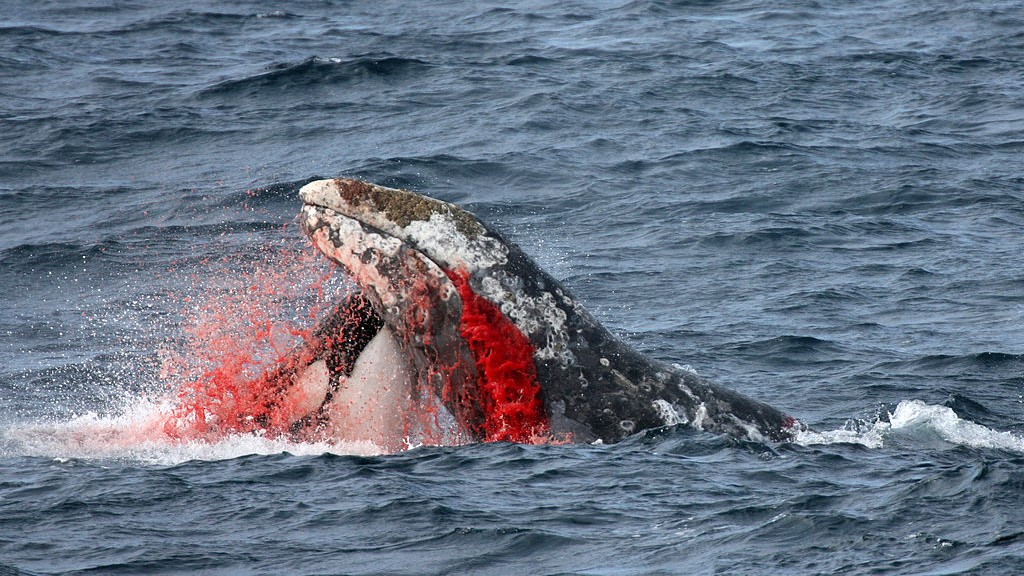'Red Tide' Is Killing Florida's Manatees

The toxic algae that cause Florida's notorious "red tides" is killing the state's endangered manatees in record-breaking numbers, researchers report.
In 1996, 151 manatees were killed by an outbreak of red tide, and experts say that record has now been equalled — and it's only March. The toxin persists in the manatees' ecosystem even after the algal bloom fades, so the die-off is expected to continue for months, NBC News reports.
"This is probably going to be the worst die-off in history," Martine DeWit, a veterinarian with Florida's marine mammal pathology laboratory, told the Tampa Bay Times.
The algae, known as Karenia brevis, is found throughout the Gulf of Mexico. When populations of K. brevis explode, as is happening now on Florida's west coast, the blooms of algae turn the water a rusty red color and result in what's known as a red tide.
The microscopic algae also contain a potent neurotoxin that can cause gastric and neurological problems in animals, including squid, birds, fish, manatees and humans.
When manatees ingest the algae, the neurotoxin shuts down the marine mammal's ability to breathe, so they drown underwater. "They’re basically paralyzed, and they’re comatose," Virginia Edmonds, animal care manager for the Lowry Park Zoo in Tampa, told the Tampa Bay Times. "They could drown in 2 inches of water."
Though the manatee population is threatened by the latest outbreak of red tide, boating remains the most common cause of death for the endangered mammals: Motorboats killed about 800 manatees from 1995 to 2005, NBC reports.
Get the world’s most fascinating discoveries delivered straight to your inbox.
Email Marc Lallanilla or follow him @MarcLallanilla. Follow LiveScience on Twitter @livescience. We're also on Facebook & Google+. Original article on LiveScience.com.



